Zhang Yuan
Рождение : 1963-01-01, Nanchino, Cina
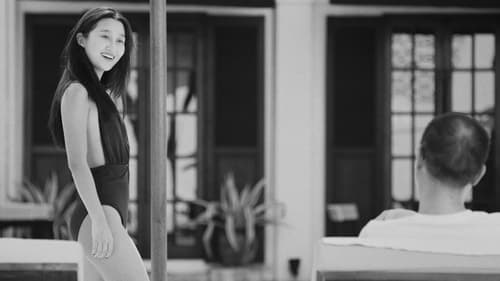
Producer
The first days of 2020's lockdown seem to drag forever for a group of tourists trapped in a Thai hotel. In strict confinement and as the big day of an unexpected event approaches, emotional entanglements, tensions and long kept secrets rise to the surface.

Director
The 2014 edition of an annual short film compilation. Zhang Yuan directs "I love you boss," about the relationship between a wealthy man and his driver. Kang Je-kyu directs "Awaiting," about a South Korean woman striving to reconnect with her husband in Pyongyang. Christopher Doyle does "Education for All," a documentary about the next generation in Hong Kong and Shu Kei's the dream focuses on a bored housewife who fixates on an attractive stranger at the next table.

Director
This short film explores same-sex attraction within the context of power relationships in contemporary China where oppression stems from the socio-economic inequality that leaves the disenfranchised pining for what they cannot have, as a young chauffeur finds himself attracted to his contemptuous and callous boss – without a single word being exchanged between the two men.

Chinese short film directed by Zhang Yuan.

Director
Chinese short film directed by Zhang Yuan.

Director
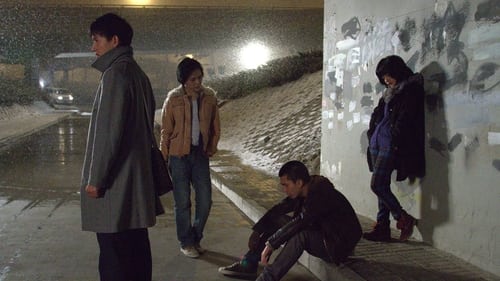
Director
Beijing is happening these days, but not everyone is living the golden life. Dumped, fired, evicted and abandoned by everyone (including his dog), a down-on-his-luck man finds solace with a circle of equally ill-fated friends, in this touching and lighthearted drama from independent Chinese auteur Zhang Yuan (Beijing Bastards). (TIFF.)

Director
The film tells the story of how an ordinary police officer can fight with criminals, combat criminal offenses, protect people's lives and property, and maintain social stability.

Director
An omnibus of 42 short films by auteur directors based on Dreams.

Director
After her mother's lecherous boyfriend reveals she's adopted, incorrigible flirt Dada skips town -- with hopelessly smitten boy-next-door Zhou in tow -- in search of her birth mother.
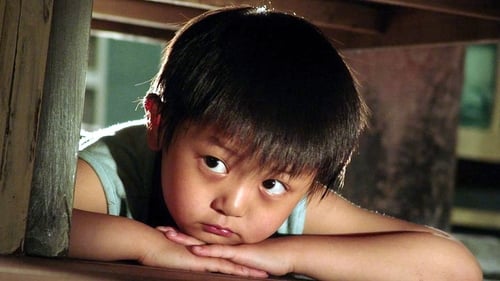
Writer
Liang is a four-year-old little rebel, possessed of a pair of luminous eyes and a precociously indomitable will. His father deposits him at a well-appointed residential kindergarten in post-1949 Beijing, since his parents are often away. Life at the kindergarten appears rich and colourful, made up of a variety of cheerfully sunny rituals and games meant to train these children to be good members of society.

Director
Liang is a four-year-old little rebel, possessed of a pair of luminous eyes and a precociously indomitable will. His father deposits him at a well-appointed residential kindergarten in post-1949 Beijing, since his parents are often away. Life at the kindergarten appears rich and colourful, made up of a variety of cheerfully sunny rituals and games meant to train these children to be good members of society.
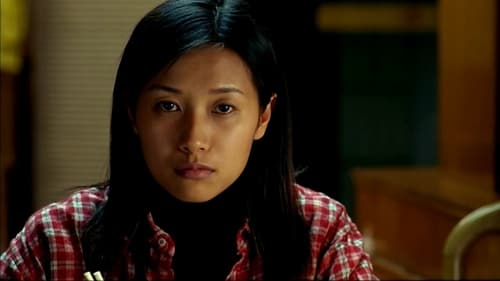
Lao Kuan
After Xiao Yu's mother died in an accident, she moved back to live with her birth father who she knows little about. Gradually, they grew to know each other and to accept each other for who they are.

Zhang Yuan
A film about Chinese underground filmmakers who were the first to express their truthful and realistic views on China from 1989 until today. It is also the first film to speak about the Chinese homosexual film scene. The documentary features Chinese intellectuals and directors such as Cui Zi’en, Jia Zhangke, Ju An Qi, Li Yu, Liu Bingjian, Liu Hao, Wang Xiaoshuai, Zhang Yuan.
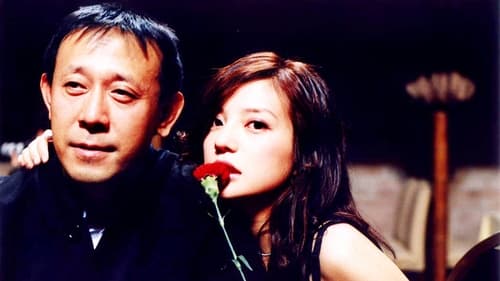
Zhang
A mysterious woman frequents tea shops and other places looking for the right man. A cup of green tea will show you the way to find your true love.

Director
A mysterious woman frequents tea shops and other places looking for the right man. A cup of green tea will show you the way to find your true love.

Director
A young woman who has lost her first love begins a relationship with his best friend, and the two of them attempt to create a baggage-free future.

Director
Jiang Jie is famous throughout China: the “Chinese Joan of Arc,” in the words of director Zhang Yuan, a communist heroine executed by the Kuomintang in 1949, on the eve of the revolution. Zhang Yuan’s film, a passionately engaged tribute to the 1964 “revolutionary opera” based on Jiang Jie’s life, follows the original closely...The Revolutionary melodrama plot, not that different from Verdi’s 19th century versions, has of course a completely different resonance today. The Cultural Revolution (1966-1976) enshrined this kind of “revolutionary opera” — based on traditional Beijing opera, but with substantial stylistic and formal revisions — as the epitome of Maoist propaganda art. In the past ten years, Chinese and Western experts have begun to re-evaluate the art behind the propaganda, to find creativity, and even shocking beauty under the layers of kitsch and repellent politics the works have sometimes embodied. —Shelly Kraicer

Camera Operator
Этот сенсационный фильм — зрелище настолько завораживающее, что никакие спецэффекты не смогли бы передать невообразимую реальность происходящего. Работа операторов поистине уникальна — впервые в истории кино птиц снимали непосредственно во время полета.

Director
In February 1995, after many years of preparation, the modern dancer Venus finally underwent transgender surgery in Beijing. On the eve of becoming a woman, he gave an interview and talked about his determination, aspirations, and good life ideals. The operation was tortuous and painful. After the operation, my father went to the police station to change the gender on the Venus ID card. From then on, Miss Venus was born. In March 2000, Venus once again interviewed her about her many boyfriends in the five years after the operation, her happy life, and her special encounters and adventures. The film allows the audience to see a Miss Venus living in her dream.

Director
Chinese film directed by Zhang Yuan

Producer
Yu Xiaoqin steals money from her father and blames on her sister Tao Lan, who accidentally kills her sister while attempting to prove her innocence. After 17 years in jail, Tao Lan is escorted by a guard only to find her home long demolished. The two go to the new address of her ageing parents, and the guard becomes witness to the family's difficult reunion.

Director
Yu Xiaoqin steals money from her father and blames on her sister Tao Lan, who accidentally kills her sister while attempting to prove her innocence. After 17 years in jail, Tao Lan is escorted by a guard only to find her home long demolished. The two go to the new address of her ageing parents, and the guard becomes witness to the family's difficult reunion.

Director
A documentary about Li Yang, who tries to teach large numbers of Chinese to speak English, using unusual methods. He holds motivational rallies, where he gets the crowd to shout out English phrases, in order to instill confidence, and tells them not to be afraid of losing face. His goal is to increase Chinese trade, and export Chinese culture, to the main world markets: North America, Japan, and Europe. After the rally, they can continue their English lessons using his taped courses.

Director
This TV documentary recounts the fact that residents of Beijing's old quadrangle refused to move during the process of rebuilding the old city for urban development. This film focuses on the balanced relationship between residents, associations, companies and countries.

Himself
This highly personal film essay demonstrates that Chinese cinema has dealt with questions of gender and sexuality more frankly and provocatively than any other national cinema. Yang ± Yin examines male bonding and phallic imagery in the swordplay and kung fu movies of the '60s and '70s; homosexuality; same-sex bonding and physical intimacy; the continuing emphasis on women's grievances in melodramas; and the phenomenon of Yam Kim-Fai, a Hong Kong actress who spent her life portraying men on and off the screen.

Producer
Парки и туалеты «запретного города» в центре Пекина — место встреч гомосексуалистов. Полиция регулярно проводит облавы и вылавливает геев. Герой фильма, очарованный красотой одного из полицейских, почти добровольно сдается ему и на допросе рассказывает историю своей жизни.

Writer
Парки и туалеты «запретного города» в центре Пекина — место встреч гомосексуалистов. Полиция регулярно проводит облавы и вылавливает геев. Герой фильма, очарованный красотой одного из полицейских, почти добровольно сдается ему и на допросе рассказывает историю своей жизни.

Director
Парки и туалеты «запретного города» в центре Пекина — место встреч гомосексуалистов. Полиция регулярно проводит облавы и вылавливает геев. Герой фильма, очарованный красотой одного из полицейских, почти добровольно сдается ему и на допросе рассказывает историю своей жизни.

Producer
Story of a real family in Beijing. The father's drinking problem starts it all. The mother struggles to keep the family together till she cannot take it any more.

Director
Despite its suggestive title, this multi-part Danish omnibus film is not a work of exploitation. Instead, it presents 20 different short films (back-to-back) on the general theme of Danish women, directed by filmmakers including Krzysztof Zanussi, Monika Treut, Gustav Hamos, David Blair, Vibeke Vogel, Dusan Makavejev, Morten Skallerud and Lars Norgaard. Some dramatic vignettes mix with other comedic ones, but all are offbeat and experimental. The picture includes one animated sequence (by Norgaard).

Director
Story of a real family in Beijing. The father's drinking problem starts it all. The mother struggles to keep the family together till she cannot take it any more.

Director
The film documents a day in the life of Tiananmen Square in 1994, a mere five years after the crushing of a student-led democracy movement in 1989.

Director
A rock musician looks for his girl-friend who left while pregnant, trying to decide whether to keep the baby.

Producer
Often cited as China’s first independent feature film, this low-budget drama, filmed largely in the director’s Beijing apartment, depicts the life of a single mother (a topic considered taboo at the time) caring for her mentally challenged son. Shot with a documentary aesthetic that includes interviews with families of mentally challenged persons, the film helped kick-start the Sixth Generation of filmmakers (including Wang Xiaoshuai and Jia Zhangke) and their ethos of employing documentary realism to depict the true conditions of contemporary China.

Director
Often cited as China’s first independent feature film, this low-budget drama, filmed largely in the director’s Beijing apartment, depicts the life of a single mother (a topic considered taboo at the time) caring for her mentally challenged son. Shot with a documentary aesthetic that includes interviews with families of mentally challenged persons, the film helped kick-start the Sixth Generation of filmmakers (including Wang Xiaoshuai and Jia Zhangke) and their ethos of employing documentary realism to depict the true conditions of contemporary China.






























